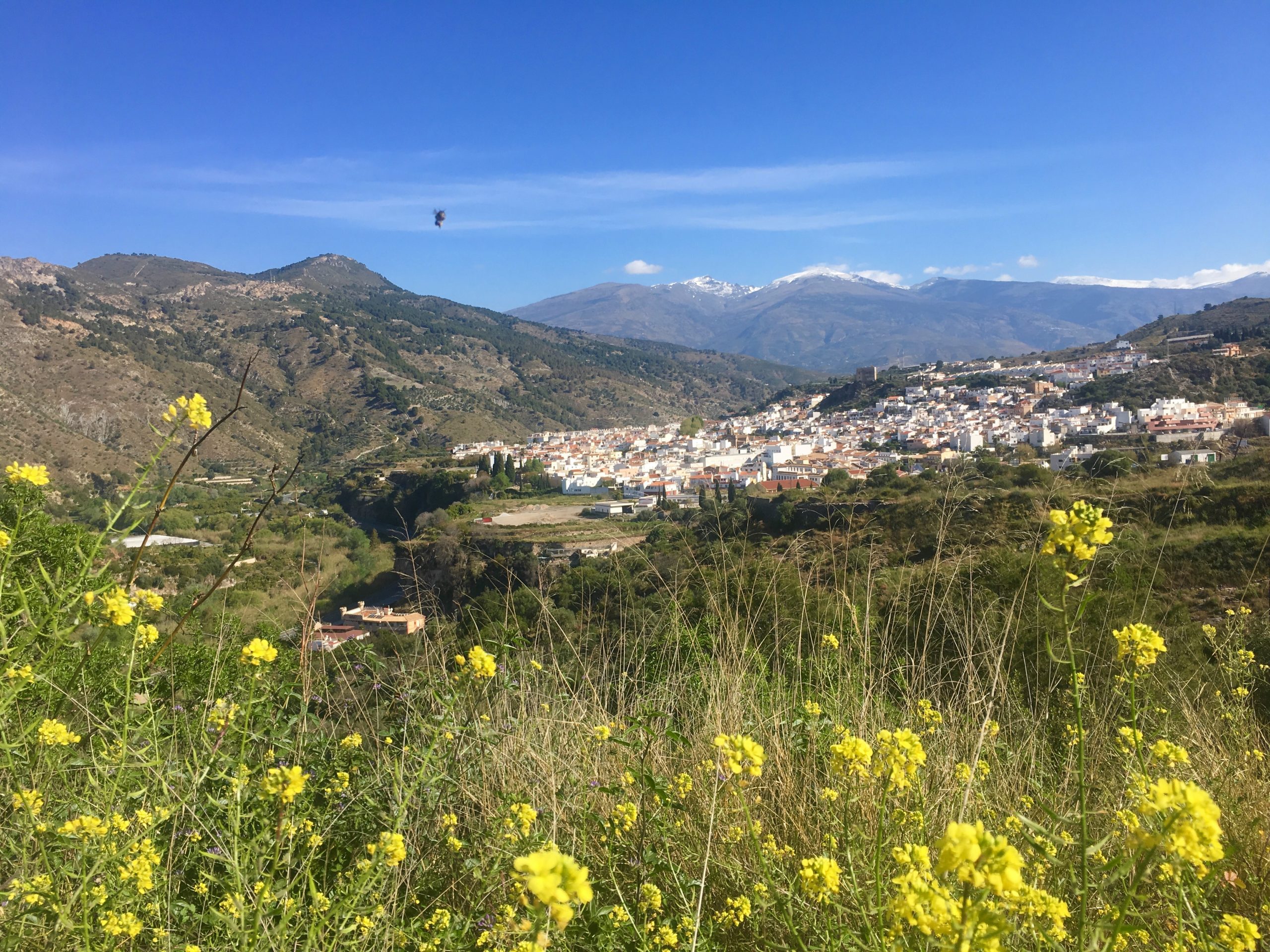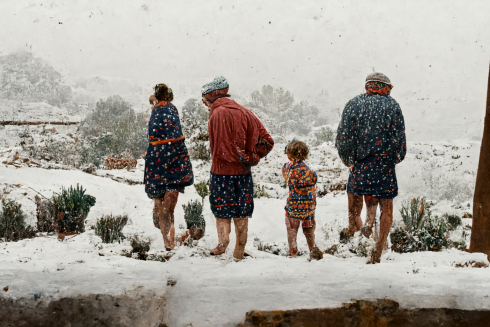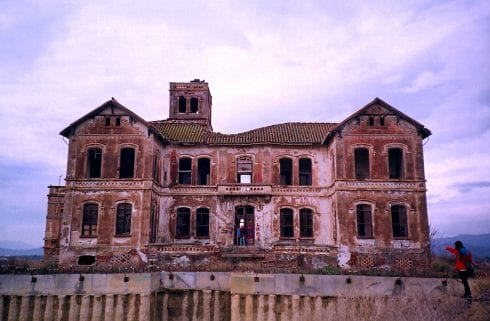WHEN the door swung open into what would be our new office it revealed a scene that suggested the previous occupant had left in a hurry.
The brass plaque with the lawyer’s name was still attached outside the entrance and the picture from his law school graduation remained on the wall above the desk, but of the man himself there was no sign.
Next to the picture stood a bookshelf packed with leather-bound tomes of the type lawyers like to be pictured sitting in front of.
It was difficult to overlook the fact that the splintered wooden door had a boot-print on it, and an upturned chair lay on the floor surrounded by scattered legal papers.
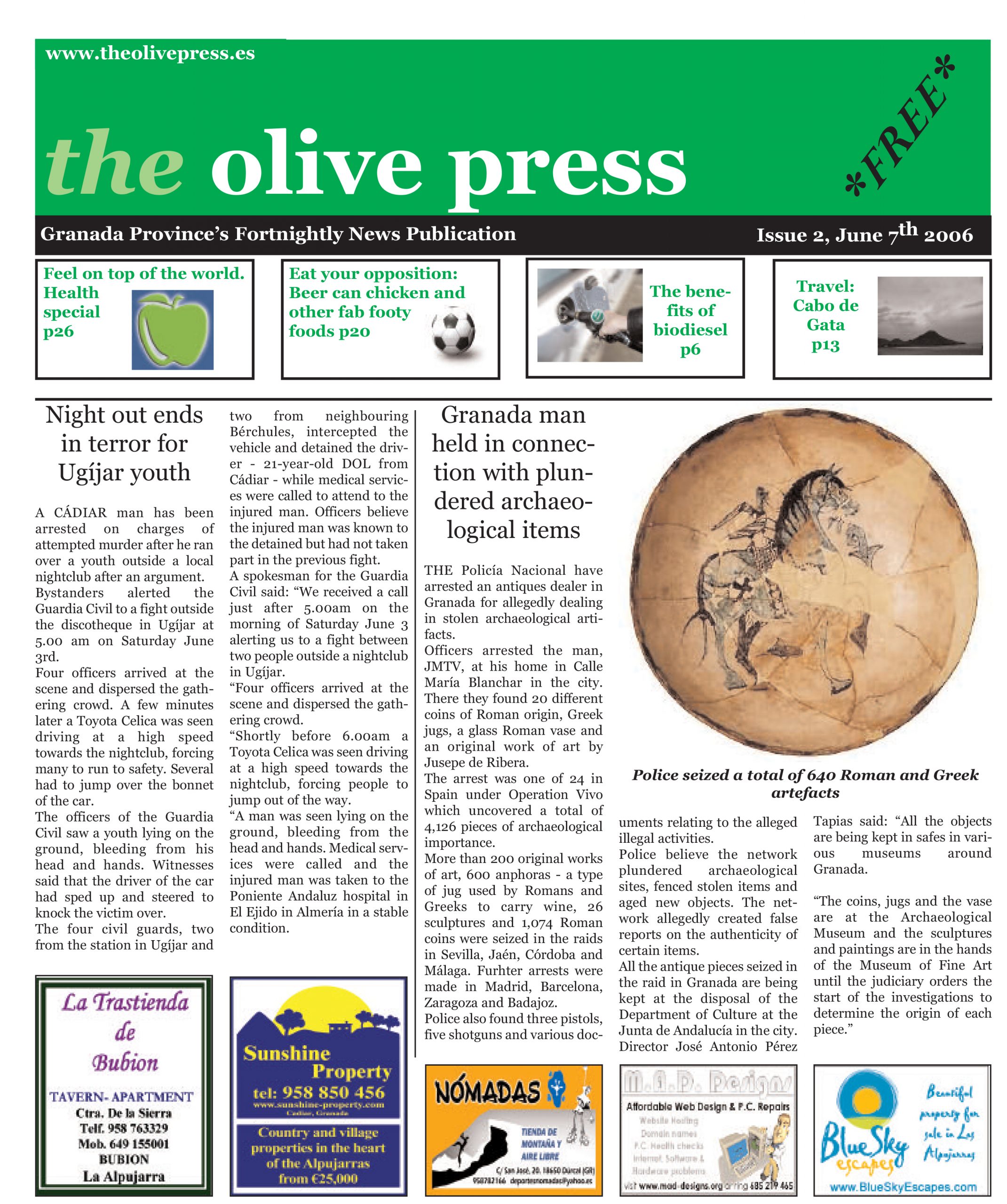
The elderly landlady was showing us around.
Mercedes was a sturdy-footed senior with a booming voice and a cast iron hairstyle.
She was speaking so fast that Marcus, our editor, had to translate for me as we inspected what was clearly a residential apartment rather than an office, complete with floral curtains and a kitchen sink full of washing up.
“These books,” she shouted as if we were deaf, “are included in the rental agreement.”
She waited for our reaction, and failing to detect one, started again, a little louder this time. “These books are included in the price of the rent.”
“We’re not lawyers,” I pointed out, “but thanks for the offer.”
The landlady didn’t seem to understand my Spanish but repeated the offer again very slowly as if we were both deaf and dumb.
“THESE BOOKS ARE INCLUDED IN THE PRICE OF THE RENT.
“They are very valuable. Maybe you will need them here in my country so you can understand the law.”
“Jesus,” grumbled Marcus, “why do these old Spanish people have to say everything three bloody times?”
Having considered cutting costs and working from home, the prospect of possessing an office in Órgiva would lend us at least some credibility, we figured.
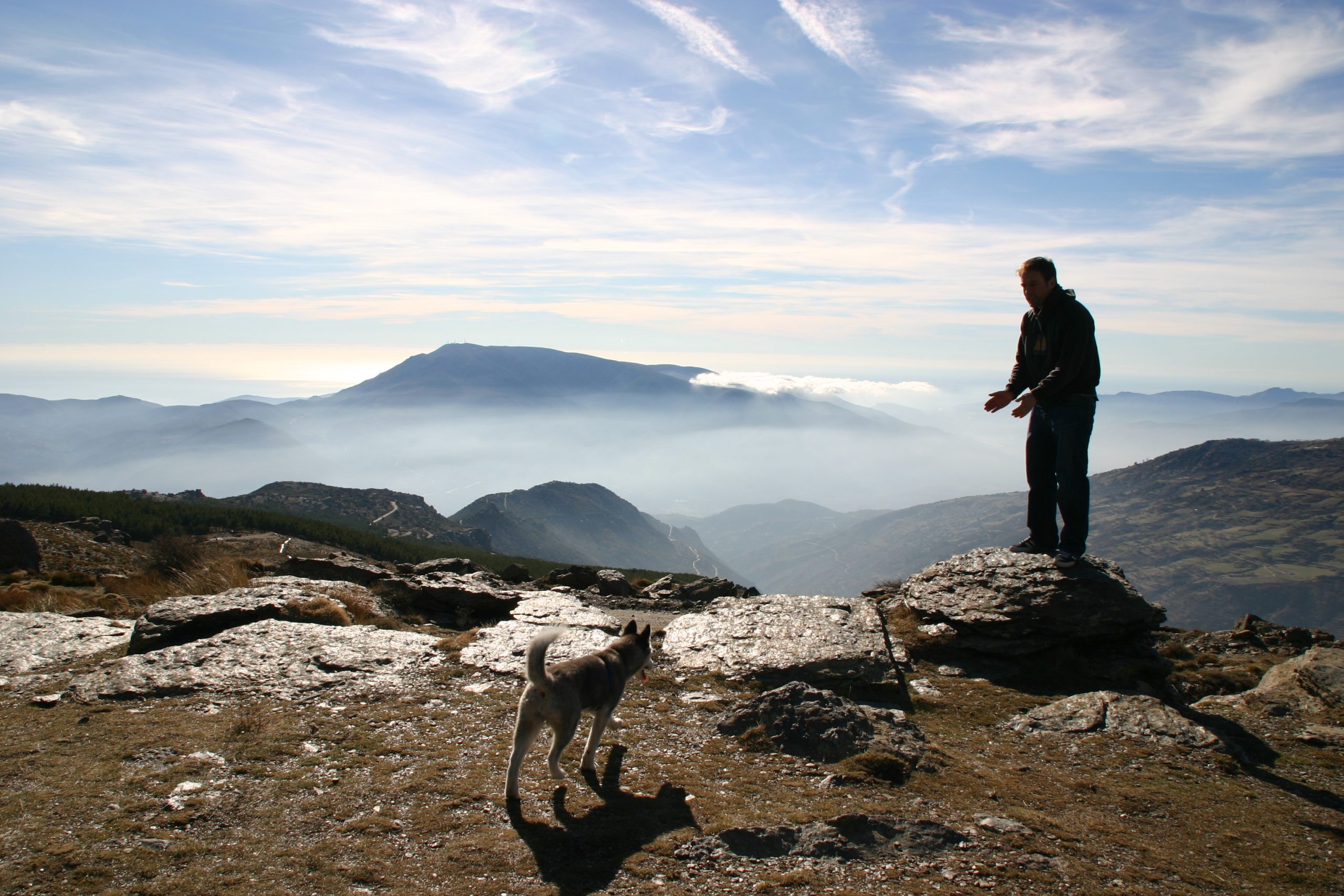
But office space was in short supply in Órgiva, a town in the Alpujarras mountains of Granada province, unaccustomed to white-collar employment, and we had almost given up the search when Molly had put us onto Mercedes.
Surveying the wreckage in the office before us the question had to be asked, and Marcus duly obliged: “What happened to the lawyer who was here before?”
She eyed him suspiciously.
“Gone. He is gone away,” she said with a dismissive flick of the wrist, “to Madrid.”
I got the impression that ‘Madrid’ was a euphemism for ‘away: destination unknown’.
“So he’s not going to come back and find us in his office?” I asked, a little hesitantly.
In truth I was more worried about people coming in looking for the man.
Whoever had kicked in the door and smashed the place up probably didn’t look wet behind the ears.
“He will not be coming back,” Mercedes replied with a wry chuckle that sounded a little sinister. “If you want his books I will also throw in the desk blotter as well.”
“As if we’d want that…” muttered Marcus.
“What are you doing here in my country?” she suddenly demanded, her penetrating stare putting us both on trial.
“We’re making a newspaper,” said Marcus.
“An estate agency?” she replied, as though that was the only rational reason to be launching a business as an expat in the very rural region.
“No a newspap…”
“Yes,” she interrupted, “you estate agents come here to sell the land from under our feet. Just as I thought.
“Well, you may rent my office while you go about your unsavoury business, but on my word, I trust you only because of your German heritage.”
“We’re English,” I interjected, feeling that perhaps I’d missed some part of the conversation.
The old woman’s eyes narrowed as she scrutinised my face for signs of dishonesty.
“Ingles?” she said, her voice softening.
“If you were English, as you say you are, you’d be pirates. And I do not let my office out to pirates!”
She spat the word ‘piratos’, disgust flashing in her eyes. She continued, almost at a whisper.
“No, you are nothing more than babies. But at least you are not English and, I must admit, I respect what you Germans have done in the past.”
“We’re not bloody Germans,” said Marcus, in English.
She reached out and squeezed his cheek, causing him to blush, and continued almost in a whisper.
“You may rent my office but, by the Lord, the rent I am charging you is so low it pains me. You hear me, it pains me! And me, a pensioner being held hostage in my own country by foreigners!”
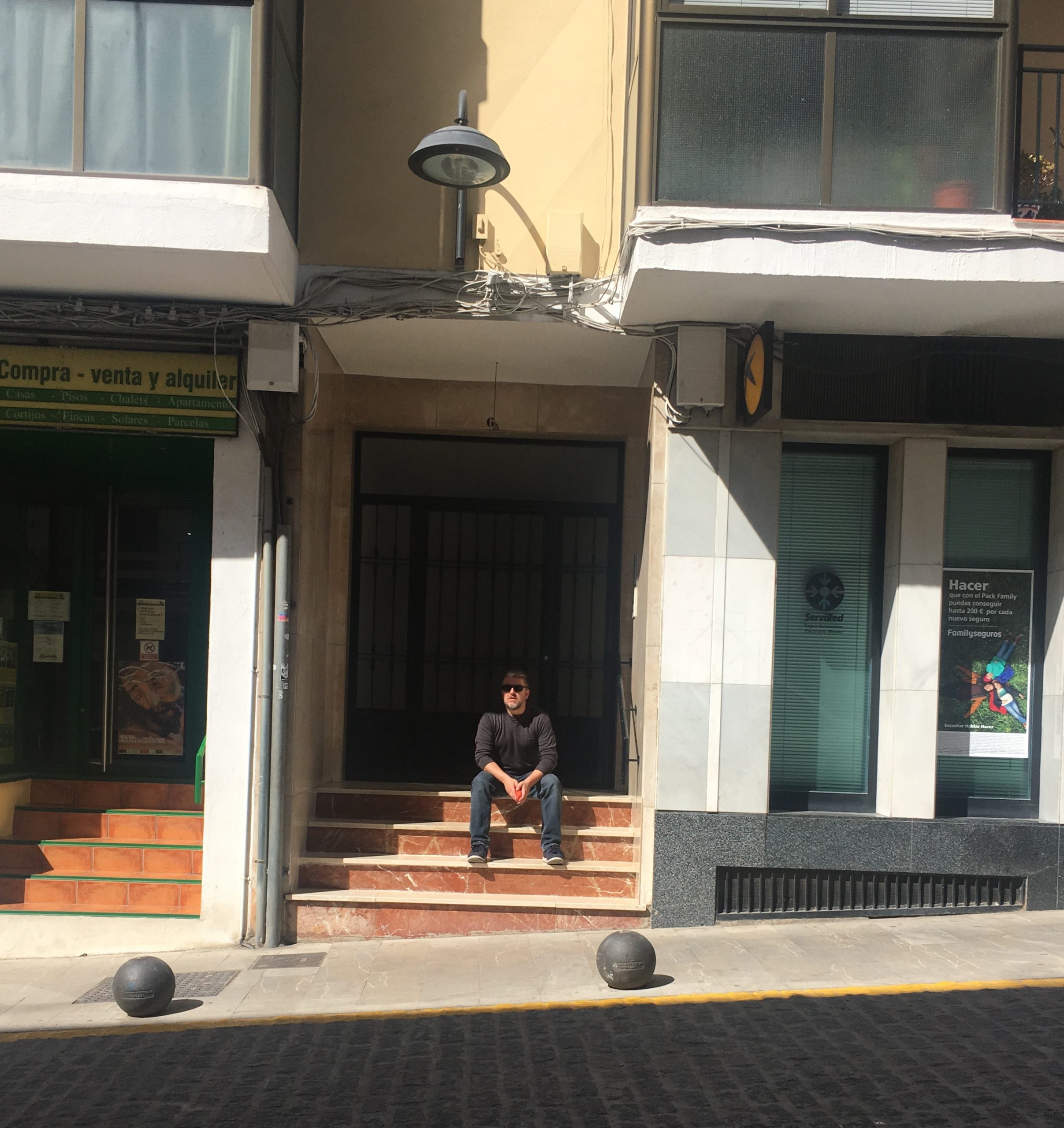
We both looked at her. She seemed to be completely mad, but an office was an office, even if it wasn’t really an office and was a bit on the pricey side.
“You may pay me a deposit of three months’ rent and the first month’s rental in cash, plus a breakages deposit.
“But do not push my generosity, if I do not hear from you by tomorrow I will give it to someone else.”
And with that the old lady turned and left us on our own. We looked around the apartment unimpeded.
It was large, consisting of a spacious reception room and two smaller ones.
The kitchen was stacked to the ceiling with cardboard boxes, and an avocado-coloured bathroom with a leaking tap, no light and an unflushable toilet.
The one large window looked down from the second floor onto an abandoned litter-strewn courtyard in which a lone fig tree had sprouted from a gutter.
Stray cats sunned themselves atop a graffiti covered wall beside the church.
“Órgiva really is a dump isn’t it?” said Marcus.
Naturally, we took the office.
Extracted from the book : Olive Press: News from the land of the Misfits, by Jason Heppenstall (available on Amazon)
Click here to read more Featured News from The Olive Press.

